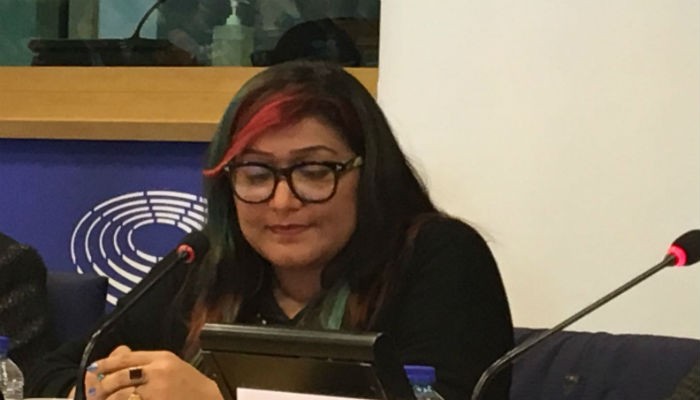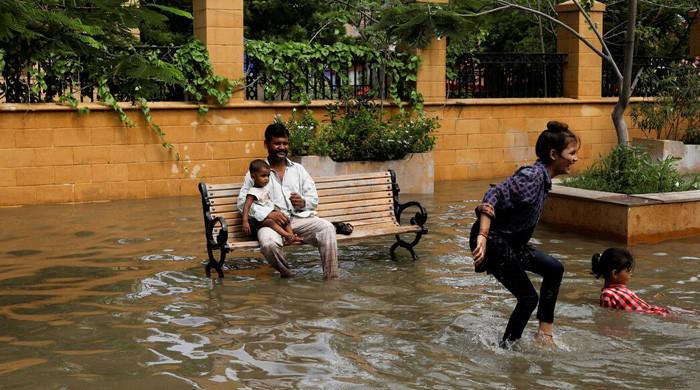40% of women face harassment on internet, says Pakistan’s first online violence study
A staggering 72% of Pakistani women have no awareness about the cyber crime laws dealing with online harassment on the internet
May 27, 2017
Forty per cent of women in Pakistan face various forms of harassment on the internet, with most complaints made related to harassment on Facebook, a recent report by the Digital Rights Foundation (DRF) has revealed.
A staggering 72% of women in the country has no awareness about the cyber crime laws dealing with online harassment on the internet, including social media sites like Facebook, Twitter, etc, stated Pakistan’s “first quantitative research study on online violence”.
The study presents a comprehensive picture of women’s experiences and usage patterns on the internet, digital literacy as well as awareness about cyber crime laws related to online harassment among women.
The report is based on data collected during 17 sessions conducted across Pakistan under the Hamara Internet, a campaign by DRF to create awareness about internet rights among women and tackling online harassment. It identifies the different forms of and states possible reasons behind online harassment, besides suggesting remedies to tackle the increasingly common problem.
The study states that 79% of the respondents use technological devices regularly, 48% own smartphones while the majority of 67% use Facebook regularly. Of the total participants, 25% said they were aware of the terms and conditions of different social media sites, while 51% do not understand the terms and conditions completely.
Identifying the issue of absence of women from public spaces, the report laments “the fact that women do not see themselves as owners of online spaces is a recurring problem. The prevalent feeling of insecurity amongst such a large sample of women points to the hostility that they face in these spaces.” This was translated in figures too, which showed most of the respondents, i.e., 35%, said that they have put up very little personal information on the internet while 6% said that a lot about them is available on the internet. Of the total respondents, 70% of the women said they are afraid of putting up their own photos online fearing misuse of pictures.
The research identified various forms of harassment as: hate speech, doxxing (leaking or publishing an individual’s personally identifiable information), accessing and dissemination of private data without consent, cyber bullying and harassment and cyberstalking.
Asked about their views about as to what constitutes harassment, 33% of the participants said ‘misusing someone’s online data’, 20% thought ‘calling someone offensive and abusive things in the comments sections of Facebook posts or websites’ was harassment, while ‘getting into contact with someone’s family or friends and disclosing their personal photos and information’ was the response of 18% of the participants. Another 15% said ‘threatening someone with physical violence for their views’ constituted harassment and 14% said it was to ‘access someone’s email or online accounts without their permission’.
Facebook and WhatsApp were “at the heart of many cases of harassment”, with women facing stalking, harassment and online violence mostly on Facebook. The numbers came close to those of the Federal Investigation Agency (FIA), the report said.
“The Federal Investigation Authority (FIA) has stated that in 2015 only five per cent of cases of harassment were reported and followed by legal action of any kind. The authority has also separately pointed out that during 2015 around 3,000 crimes were reported, and 45% of these consisted of women being targeted on social media,” read the study.
When asked if they would report online harassment to the authorities, 11% of the women said that they or their acquaintances did not think reporting online harassment to the FIA would help, while 70% said neither they nor anyone they knew had reported online harassment to the FIA.
“A follow up question required the respondents to state whether the law enforcement agency was helpful when they or anyone they knew did report. Of the participants who answered this question, a disturbing 53% said that it wasn’t helpful at all, while 47% said that it was,” the study said.
Asked why they did not report harassment, 45% of women said they felt ashamed to do so, while 47% thought that they feared their complaints will not be taken seriously, and 9% consider it a waste of time.
The research argues that online violence and stalking of women should be seen as an extension of violence against women in other spaces in the society. “…online violence encompasses and is encompassed by offline socio-cultural issues such as domestic abuse and sexual harassment, and it is further buttressed and aggravated by factors that prevent women from exercising their right to justice, such as lack of familial support and ineffective platforms that can ensure redress,” it says.
“In my opinion, it's important to aggressively work to raise awareness around the laws to empower people to control how they want to experience the online spaces. Perpetrator gets away with their actions because the victim is scared to report the harassment to the LEAs. One important reason for this is the victim blaming they face when they choose to report the online violence they experience. Steps are needed to be taken to ensure the safety the women and other marginalised groups deserve online,” said founder and director of DRF.
The report suggests various recommendations to internet service providers, government and law enforcement agencies to ensure effective handling of the issue. These include educating women about online platforms and cyber security, ensuring appropriate laws and their effective implementation, addressing the root cause, i.e. gender-based violence, and maintaining figures and data on the matter.
—The writer works at Geo. She tweets @Sindhu_Abasi













